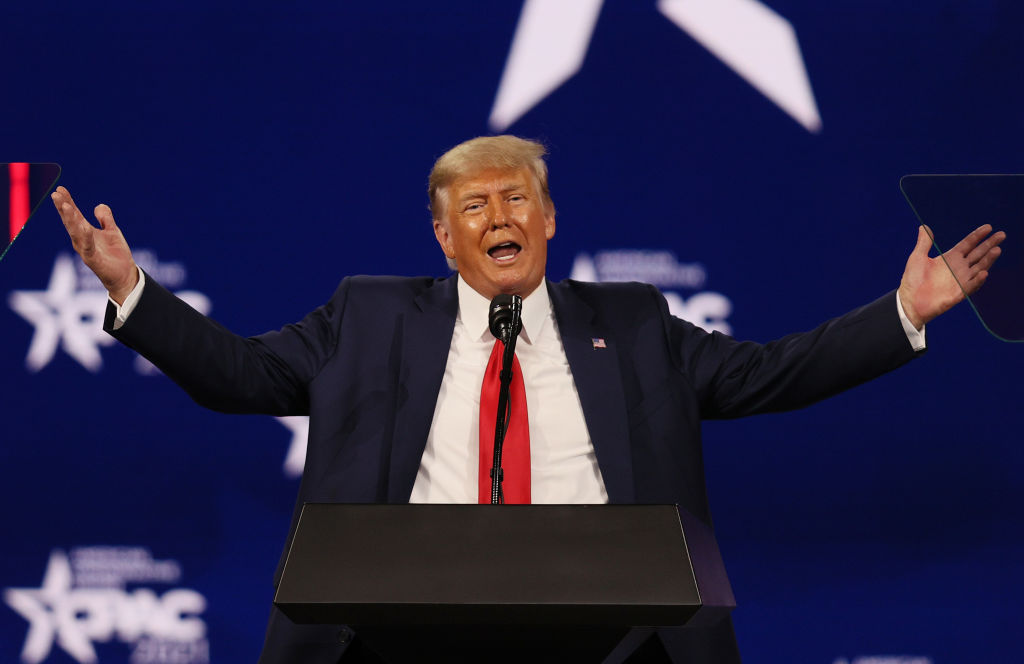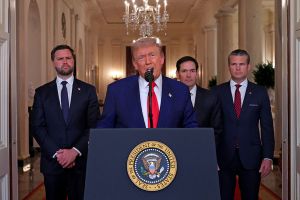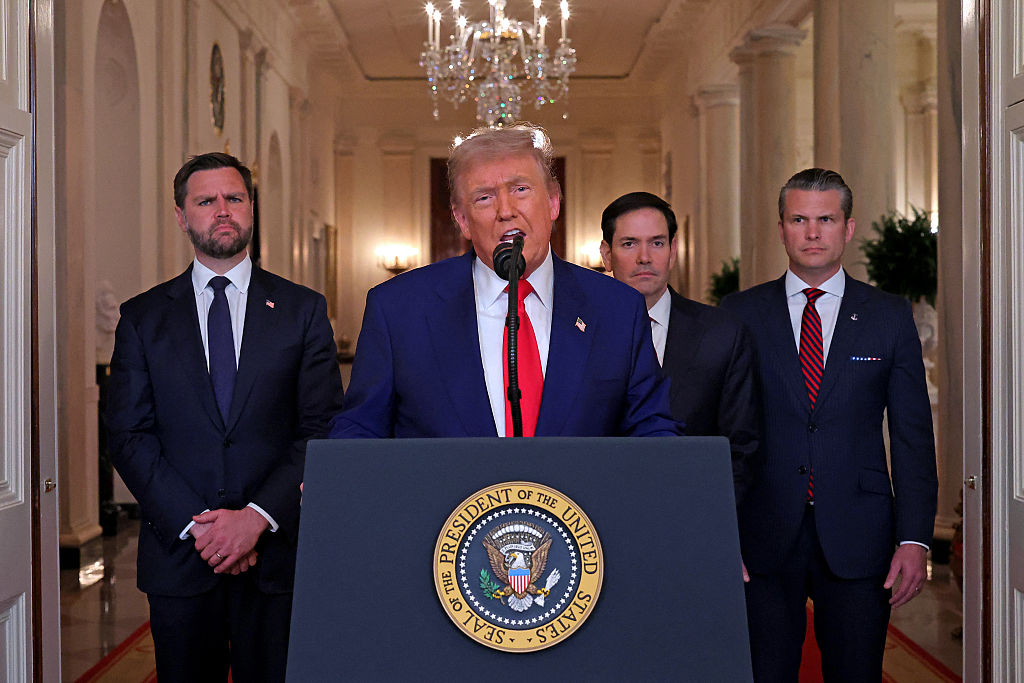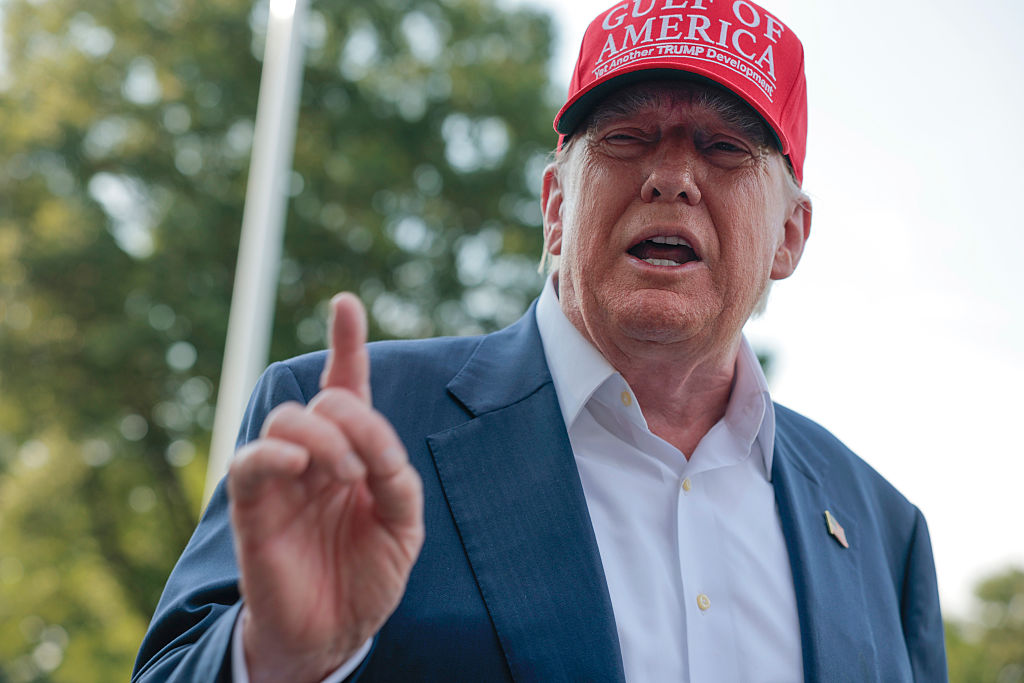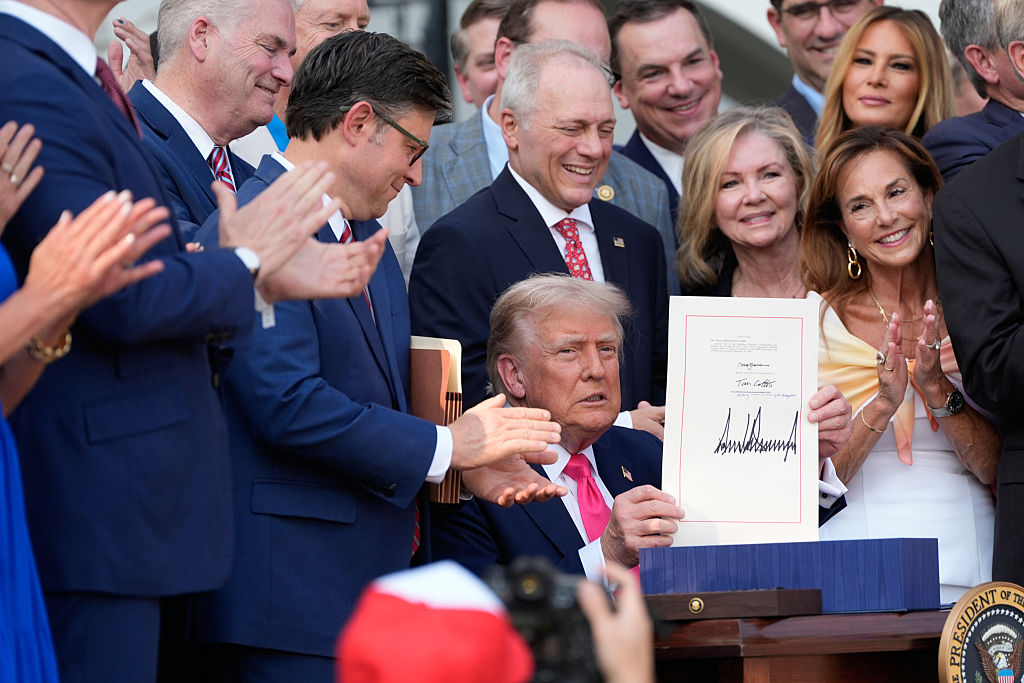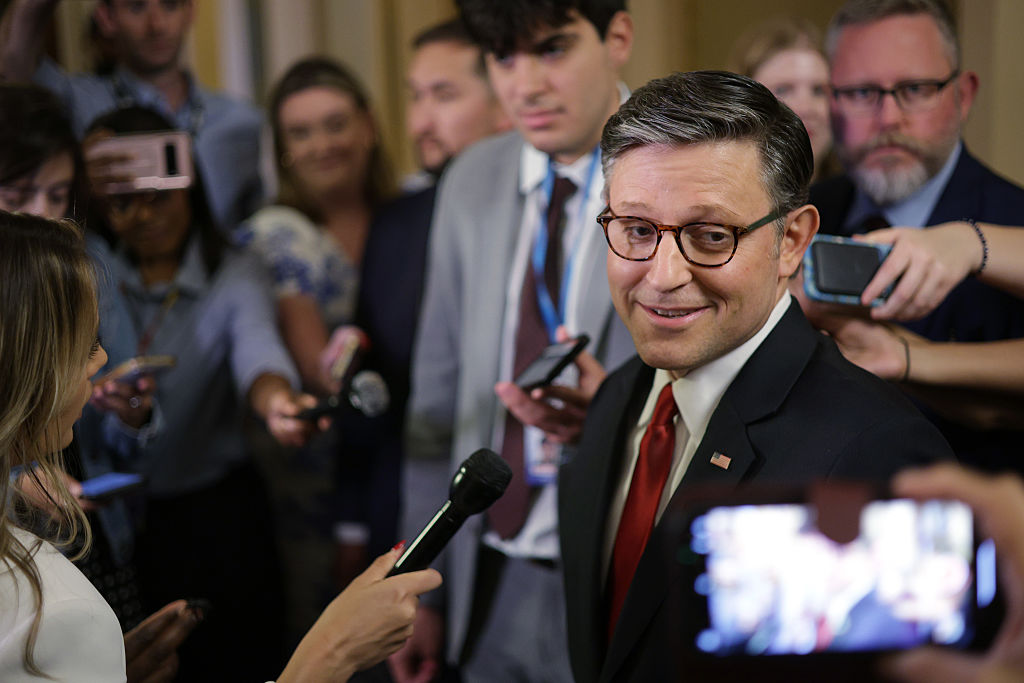Forty minutes into Donald Trump’s remarks at CPAC, I’d formed a conclusion. Donald Trump hasn’t just taken over the Republican party, I thought, the Republican party has taken over Donald Trump.
The speech got off to a slow start, with Trump’s familiar critiques of illegal immigration failing to elicit much excitement from the audience. Was this tried and true, as far as they were concerned, or just tired and true? Soon enough Trump was uttering phrases that any Republican leader of the last 30 years might have recited: socialism, radical Democrats, exceptional nation, Judeo-Christian values. Farmers this and farmers that. Mostly fine — all routine. The urgency was gone.
But the speech kept going. And while little was new, Trump started to sound like Trump again. The audience roared — the crowd thrilled to hear his continuing characterization of the 2020 election as a fraud. Trump doubtless believes what he says, because, after all, he believed that he was cheated in the election that he won in 2016, too. (Recall his talk of voter fraud right after he was sworn in: he thought he had won the popular vote as well, or at least that it was closer than the numbers showed.)
At last Trump came to the point so many of his supporters, and so many of the Republican party’s ill-wishers, had been waiting for: the roll-call of traitors and political targets in the GOP ‘civil war.’ Trump named every House and Senate Republican who had voted to impeach or convict him. ‘The Democrats don’t have grand-standers like Mitt Romney, little Ben Sasse, Richard Burr, Bill Cassidy, Susan Collins, Lisa Murkowski, Pat Toomey; and in the House…’ — well, the list is long, so let’s skip right to the coup de grace — ‘And of course the warmonger, a person that loves seeing our troops fighting, Liz Cheney. How about that? The good news is in her state, she’s been censured. And in her state, her poll numbers have dropped faster than any human being I’ve ever seen. So hopefully, they’ll get rid of her with the next election. Get rid of them all.’
The speech was an omnibus, covering just about every interest in the Republican party, including the new populist interests that Trump has brought into the GOP. The fusion that Trump and the GOP have settled into is a rather shapeless mass for the most part, without a clear head or tail — many policies, few obvious priorities. Yet there is something about this emerging condominium that’s better than what came before Trump. This passage, for example, is platitudinous — but not quite as empty as that old talk about the ‘opportunity society’: ‘The future of the Republican party is as a party that defends the social, economic, and cultural interests and values of working American families of every race, color, and creed. That’s why the party is growing so rapidly and is becoming a different party. And it’s becoming a party of love.’ A party of love — Trump still has the capacity to say just what you least expect.
In 2016, Trump won with the power of negativity, though not in the way his harshest critics think. American politics is largely driven by negative partisanship: Republicans don’t love the GOP, but they hate the Democratic party; Democrats likewise loathe Republicans more than they love their own leaders. As an outsider who attacked Republicans within the Republican party and Democrats in the general election, Trump was in a unique position to capitalize on negative partisanship from both directions. If you hated the Republican party (as it was then), Trump was the best way to wreck it. If you hated the Democrats, Trump was the alternative. He was the antithesis and the nemesis of Bush Mk. III and Clinton Mk. II, and Americans were reasonably happy to give that alternative a shot. That Trump in 2016 spoke discomfiting truths about our inability to win wars and the ongoing loss of manufacturing jobs in the Rust Belt helped him, too. He wasn’t just a politician selling new platitudes in the place of the old. He was a voice of reality — despite all the unreality that came with him, too.
But having awakened Americans to the realities of a failed China policy, a failed post-industrial economic dispensation and a series of failures in foreign affairs, Trump and his party now have to go beyond the critique that worked in 2016. This task proved to be Trump’s downfall in last year’s election, and it will be similarly disastrous for the GOP if the party can’t move from critique to construction. Such Rust Belt states as Pennsylvania, Michigan, and Wisconsin won Trump the White House in 2016 — and cost him the White House last year. Trump’s CPAC remarks didn’t signal any new idea about how to win these states in 2024. On the contrary, Trump seemed more impressed by his victory in Iowa last year than by his defeat in the big industrial states.
Trumpism and the GOP (and Trump himself, if he wants to run again) need a way to win back the industrial heartland. That requires psychology as well as policy — to the extent that Middle American common-sense still survives, it demands no bullshit and a lot less drama. Joe Biden proved to be the perfect Democrat to beat Trump because he reassured that old neither-coastal sensibility. The woke Democratic party of today has few Bidens left, but as long as it has just one (however decrepit he may become), it can remain the party of the key presidential battleground states. Even the 2022 midterms might not be the salvation that Republicans expect, if they cannot find an effective focus. Hostility to the president is usually a reliable driver of midterm turnout — it was in 2018, when Democrats retook the House and it was in 2010 when Republicans took it. Anti-Bush sentiment was potent in 2006, just as Anti-Clinton sentiment was in 1994. That doesn’t mean Republicans can count on anti-Biden sentiment 18 months from now. If the reportedly pitiful sales of anti-Biden kitsch at CPAC is anything to go by, or the relatively small place that Biden occupied in Trump’s remarks to the conference, Biden alone will not be enough to motivate Republicans to turn out next year.
The GOP and Trump are not destroying one another in a civil war, but they run the risk of neutralizing one another by merging into a blob. Trump and his aspiring heirs have to more than own the GOP, they need to lead it. That requires focus, and discipline.



